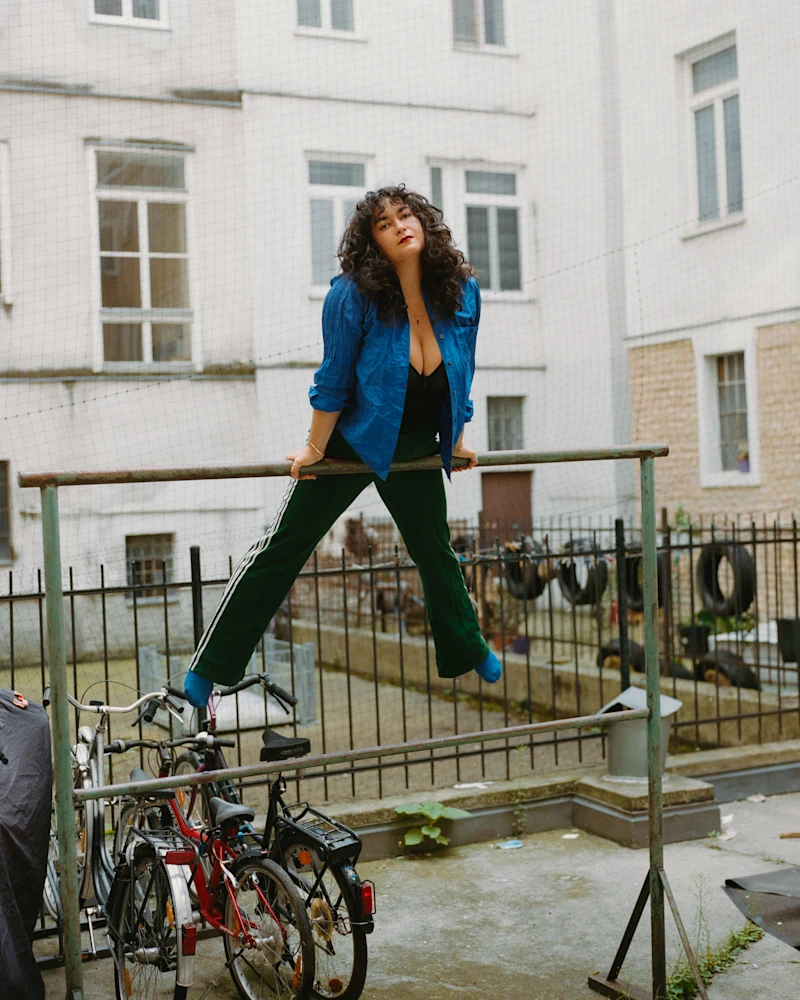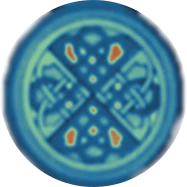
DJOANA DJONES GUEORGUIEVA
The performance and installation workshop Obsolescent Accidental Behavior Intervention re-evaluates overlooked domestic objects—most often wielded by women—such as the carpet-beating frame, returning once again from the installation A/current. Still found in the courtyards of social welfare housing, these frames now serve as football goals, informal meeting points, or makeshift workout stations—quietly transformed by time and function. The woven beater, reimagined in metal, emphasizes the weight of the physical act, while the carpet itself becomes a site of communal weaving, where stories are held, shared, and passed down.
No longer static remnants of unpaid labor, these tools are reclaimed as resonant instruments of embodied memory. Through the durational act of rhythmically beating out time in the form of accumulated dust, Gueorguieva transforms a once-familiar, now-erased gesture into a loud, droning heartbeat through the use of contact mics and guitar pedals.
The ritual unfolds as both sport and workshop: a collective, physical intervention into the suppressed registers of female anger and the long-standing repression of voice. In reclaiming these gestures of labor and repetition, the work stages a confrontation with the politics of silence—offering catharsis through exertion, and a re-sensitization to the emotional, cultural, and sonic residue embedded in obsolete, everyday rituals.—inviting audiences to release what has long gone unspoken, and to let it out in a plume of dust in act of collective care practice.

Djoana Gueorguieva is a Bulgarian-born, Malmo based artist shaped by a condition of ongoing diaspora, negotiating multiple cultural and linguistic inheritances across borders. Her interdisciplinary practice—anchored in moving image , performance and installation—functions as a site of inquiry into the instability of identity, the fragmentary nature of memory and its language, and the narrative architectures that shape collective consciousness. Her work interrogates the notion of a coherent or singular self—treating identity not as essence, but as a mutable constellation of inherited fragments, absences, and reimaginings. Gueorguieva approaches memory as both method and matter: a site of rupture as much as continuity, where time folds, loops, and falters. With a sensorial language drawn from ancestral gestures—domestic rituals, and cultural objects, folded sheets, worn carpets, passed-down songs—Gueorguieva creates temporal spaces where the domestic becomes epic, and the intimate becomes collective. Her practice asks how memory moves through the body, how history is stored in repetition, and how language might stretch into something more porous, more poetically wet, messy and transmissive. Through this form of resistance, asking how knowledge, history, and belonging can be carried, not as monuments, but as mutable, living forms.Her work has been presented across a range of contexts—including off-spaces, galleries, film festivals, and institutional settings— include the Venice Biennale (group performance), Den Frie Centre of Contemporary Art in Copenhagen, MUMOK and MQ in Vienna, as well Thierry Goldberg Gallery in New York, reflecting the interdisciplinary and migratory nature of her practice. . She is a recent recipient of the Swedish Arts Grants Committee’s one-year working grant (Konstnärsnämnden), supporting the continued evolution of her research-based and materially embodied practice.